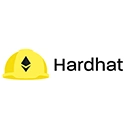Debugging smart contracts is a crucial part of the development process, as it helps identify and fix issues before deploying to the Ethereum mainnet. Hardhat provides powerful tools for debugging, including stack traces, console logs, and the Hardhat Network's built-in debugging features. This guide will explain how to effectively debug smart contracts using Hardhat.
1. Prerequisites
Before you begin debugging, ensure you have:
- A Hardhat project set up with your smart contracts.
- The Hardhat development environment running.
2. Using Console Logs
One of the simplest ways to debug smart contracts is by using console logs to output variable values and execution flow. Hardhat supports console logging via the console.sol library.
2.1. Install the Console Library
First, you need to install the hardhat-console library:
npm install --save-dev hardhat-console2.2. Import and Use Console in Your Contract
Next, import the console library in your smart contract and use it to log messages. Here’s an example of a simple contract with console logs:
// SPDX-License-Identifier: MIT
pragma solidity ^0.8.0;
import "hardhat/console.sol";
contract MyToken {
string public name = "MyToken";
mapping(address => uint256) public balances;
constructor() {
console.log("MyToken contract deployed!");
}
function mint(address to, uint256 amount) public {
balances[to] += amount;
console.log("Minted %s tokens to %s", amount, to);
}
function balanceOf(address account) public view returns (uint256) {
return balances[account];
}
}In this contract:
- The constructor logs a message when the contract is deployed.
- The
mintfunction logs the amount of tokens minted and the recipient's address.
3. Running Tests with Hardhat
Hardhat allows you to run tests that can help you debug your contracts. You can write tests using the Mocha framework, and Ethers.js for interacting with the contracts.
3.1. Create a Test File
Create a new test file in the test directory named MyToken.test.js:
const { expect } = require("chai");
describe("MyToken", function () {
let MyToken, myToken;
beforeEach(async function () {
MyToken = await ethers.getContractFactory("MyToken");
myToken = await MyToken.deploy();
await myToken.deployed();
});
it("should mint tokens correctly", async function () {
const [owner, addr1] = await ethers.getSigners();
await myToken.mint(addr1.address, 100);
const balance = await myToken.balanceOf(addr1.address);
expect(balance).to.equal(100);
});
});In this test:
- We use the
beforeEachhook to deploy a new instance ofMyTokenbefore each test. - The test checks if the
mintfunction correctly updates the balance of the recipient.
3.2. Running the Tests
Run the tests using the following command:
npx hardhat testIf there are any assertion failures or issues, Hardhat will provide detailed error messages, including stack traces, which can help you identify the problem.
4. Debugging Transactions with Hardhat Network
Hardhat's built-in network allows you to debug transactions in a more interactive way. You can use the Hardhat console to inspect the state of your contracts after transactions.
4.1. Starting the Hardhat Network
Start the Hardhat Network with the following command:
npx hardhat node4.2. Interacting with the Contract
In a new terminal, you can run scripts or use the Hardhat console to interact with your deployed contracts. For example:
< pre>npx hardhat console --network localhostOnce in the console, you can interact with your deployed contract:
const MyToken = await ethers.getContractFactory("MyToken");
const myToken = await MyToken.attach("YOUR_DEPLOYED_CONTRACT_ADDRESS"); // Replace with your contract address
// Call functions and inspect state
const balance = await myToken.balanceOf("ADDRESS_TO_CHECK");
console.log(`Balance: ${balance.toString()}`);
This allows you to inspect the state of your contract and debug issues in real-time.
5. Conclusion
Debugging smart contracts in Hardhat is made easier with tools like console logging, automated tests, and the Hardhat Network. By utilizing these features, developers can efficiently identify and resolve issues, ensuring their smart contracts function as intended before deployment.

